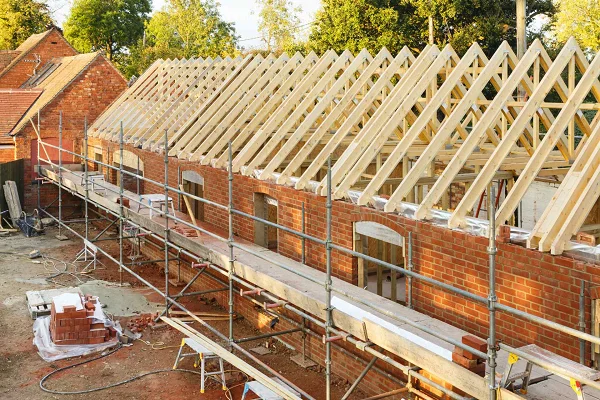Bridging Loans for Property Development: How Does it Work?

Specialist development finance is a popular choice for property developers and construction companies, providing prompt access to significant sums of money for extensive and ambitious projects.
However, there are scenarios where a bridging loan for property development could be a better choice. Unlike development finance, bridging loans are issued in the form of a single lump sum. Not released in a series of stages as the project progresses. In addition, qualifying for a bridging loan can be fairly straightforward, whereas development finance is offered exclusively to established property developers.
But how does a development bridging loan work, and what are its key features? More specifically, what makes a bridging loan for property development a better choice than a standard commercial loan or mortgage?
Typical applications for property development bridging loans
A bridging loan can be used for any legal purpose, with few restrictions as to the potential applications for the funds. Some of the more common uses of property development bridging loans are as follows:
- To pick up low-cost properties at auction and to fund the subsequent renovations required.
- To purchase a plot of land quickly and beat rival bidders to the punch.
- To commence and complete a project as quickly as possible when time is a factor
- To fund any kind of property development project as a new or experienced developer.
Property development bridging loans can also be a useful facility for subprime applicants who would otherwise be unable to qualify for a conventional property loan or mortgage.
How does a development bridging loan work?
A development bridging loan is a strictly short-term facility designed to ‘bridge’ a temporary financial gap. Ideal for time-critical purchase and investment opportunities, a bridging loan can be arranged and issued within the space of a few days.
Repayment typically takes place six to 18 months later, in the form of a single lump-sum payment inclusive of rolled-up interest. Monthly interest applies at rates as low as 0.5%, negotiable in accordance with the size and nature of the loan taken out.
Maximum loan values are tied to the assessed value of the assets used to secure the loan, which is typically the home or business property of the applicant. Lending policies vary, but most bridging finance specialists are willing to offer anything from £50,000 to more than £10 million.
How much deposit do I need for a development bridging loan?
Technically speaking, there is no specific deposit requirement for a development bridging loan. Most lenders are willing to offer loans with a maximum LTV of 70% to 80%. This would therefore mean that the investor would need to cover the other 30%/20% of the costs, but not in the form of a deposit in the conventional sense.
A higher loan-to-value ratio can sometimes be negotiated, often up to 100% LTV. An alternative option is to take out a bridging loan with an LTV of 70% or 80% and use a second- or third-charge loan from a separate provider to cover the additional costs.
As all development bridging loans are bespoke agreements between the issuer and the borrower, terms and conditions can be negotiated to suit all requirements and preferences.
Getting the best deal on a development bridging loan
All bridging loan applications are assessed on their individual merit, highlighting the importance of presenting a convincing case.
Specifically, there are four factors that will determine the competitiveness or otherwise of the loan you are offered:
- Your exit strategy: Your lender will expect to see evidence of a viable exit strategy, i.e., when and how you intend to repay the loan. For example, by selling the property you plan to purchase after renovating it, you raise the capital needed to repay the loan, resulting in additional profits for you to retain.
- Available assets: All property development bridging loans are secured against viable assets – usually residential or commercial property. However, some lenders are willing to accept other assets of value, ranging from vehicles to business equipment to intellectual property to company shares.
- Credit history: Poor credit will not necessarily count you out of the running for a competitive bridging loan. Most lenders are willing to work with subprime applicants, but a good credit history could help you qualify for the best possible deal.
- Experience: Understandably, lenders will usually reserve their best deals for applicants with an established track record in the property development sector. The more experienced you are, the more likely you are to qualify for a competitive bridging loan.
With each of the above, your broker will provide the independent support and advice you need to present a convincing case to your preferred lender.
Your broker will also negotiate on your behalf to ensure overall borrowing costs are kept to the bare minimum.
